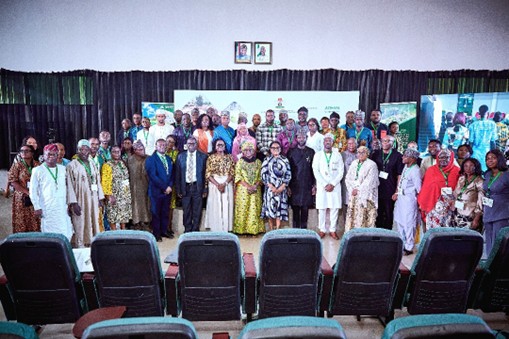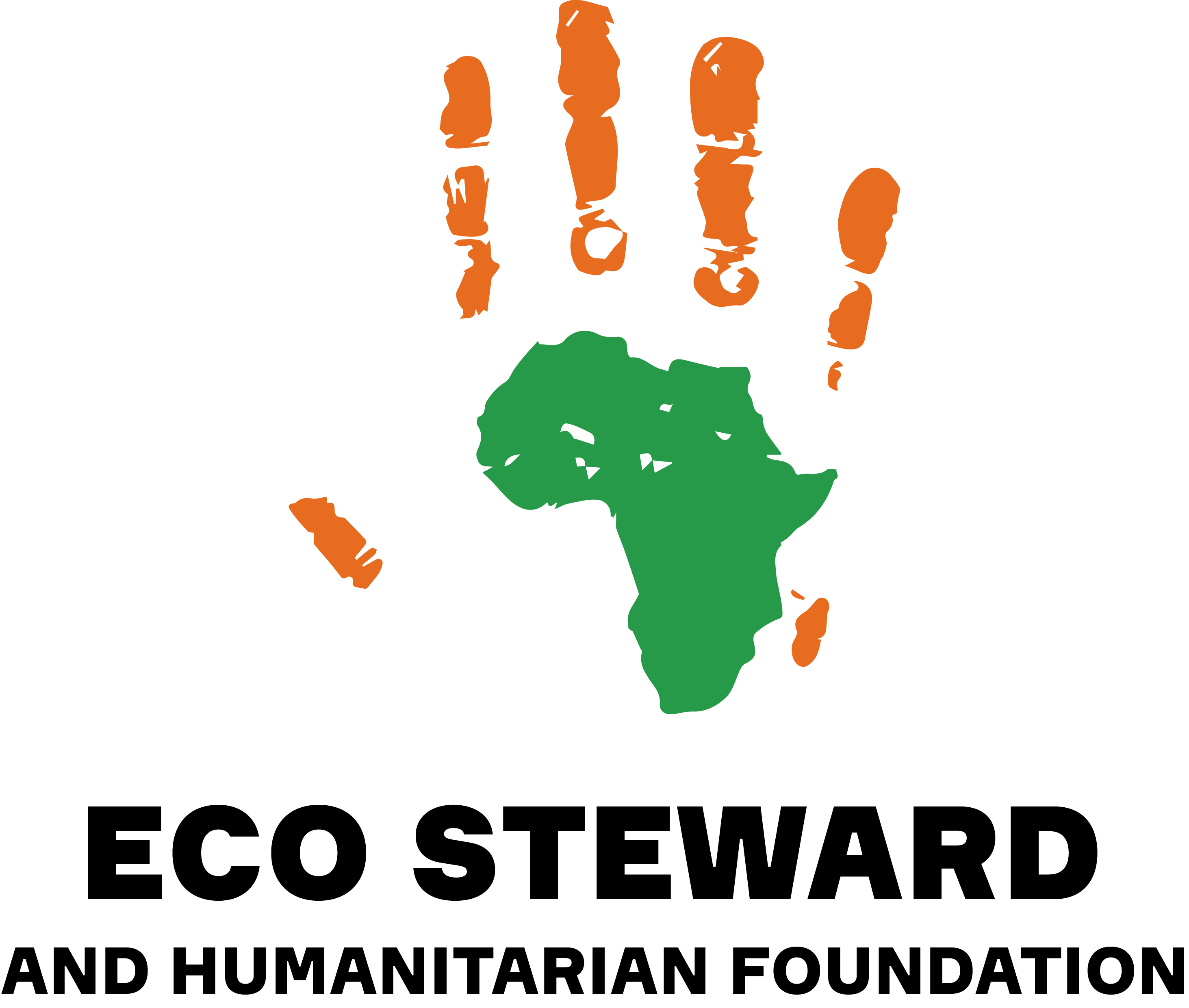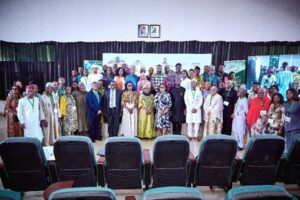
Gallery: overview of stakeholders at the workshop
The Ecosteward and Humanitarian Foundation (EHF) joined key stakeholders at the Review and Validation Workshop of the Monitoring and Evaluation (M&E) Framework for Nigeria’s National Climate Change Policy (NCCP) 2021–2030, held under the auspices of the Federal Ministry of Environment’s Department of Climate Change with support from the Agro-Climatic Resilience in Semi-Arid Landscapes (ACReSAL) project on July 30, 2025
According to Dr. Iniobong Abiola-Awe, Director of the Department of Climate Change, the workshop is part of a broader national process to strengthen climate governance, harmonize institutional efforts, and ensure accountability for Nigeria’s commitments under the Climate Change Act (2021), the Nationally Determined Contributions (NDCs), and the Long-Term Low Emission Development Strategy (LT-LEDS).
The workshop brought together representatives from government ministries, civil society organizations, academia, development partners, and the private sector. Participants worked collectively to refine the draft M&E Framework designed to track NCCP progress, align with international reporting obligations, and support the mobilization of climate finance.
Dr. Pius Agaji OKO, Convener of EHF, noted that EHF’s contributions focused on embedding grassroots realities into national climate policy implementation. “We emphasized the need for inclusive monitoring frameworks that recognize youth, women, and vulnerable communities as essential actors, while also stressing the importance of climate education, decentralized data collection, and public awareness,” he explained.
The validated M&E Framework features indicators across mitigation, adaptation, and cross-cutting areas. Mitigation indicators cover greenhouse gas emissions by sector, renewable energy share, and energy efficiency milestones, while adaptation indicators include adoption of climate-smart agriculture, early warning system coverage, and climate-resilient infrastructure. Cross-cutting indicators highlight climate finance mobilization, gender and youth integration, public–private partnerships, and academic research outputs.
EHF’s involvement has strategic implications for its future programs, particularly in aligning climate education initiatives with national monitoring indicators, supporting local governments in adaptation planning, and strengthening grassroots participation in national reporting processes. The Foundation’s presence at the workshop reaffirms its role as a key civil society actor advancing transparency, accountability, and inclusivity in Nigeria’s climate governance landscape.
The Review and Validation Workshop marked a significant milestone towards operationalizing the NCCP 2021–2030 through a robust and participatory M&E system, positioning Nigeria to better deliver on its climate commitments while ensuring local realities inform national action.

